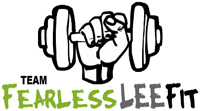How Sodium Affects Your Weight
Salt versus Sodium
Salt and sodium are often used interchangeably but they are not the same thing. Sodium, which is found naturally in most foods, accounts for approximately 40% of table salt. Therefore when salt is added to food, the sodium content increases by approximately 40% of the amount of salt added!
We add table salt (sodium chloride) during cooking and at the dinner table to enhance the flavor of our food. Manufactures add it, often in great quantities, to return flavor to processed foods and help preserve them. But when we look at nutrition content, we look at sodium.
Sodium = 0 Calorie BUT…
Sodium does not cause your body to gain or lose fat. In fact, sodium has no calories. High consumption of sodium only results in temporary weight gain as it causes your body to retain water. Conversely, low consumption of sodium can result in temporary weight loss as it causes your body to expel water.
Many lose-weight-fast diets on the markets rely on foods with little or no salt content. The weight loss is mostly water, and as soon as you eat foods containing salt again you regain the weight. I tried the infamous lemonade+cayenne pepper+maple syrup diet once and I ate little whole food during that period. I lost a whopping 10 lbs in a week. But the horror began when I started eating just the regular meal, I put back 15 lbs in a few months! 🙂 That’s when i realized that nothing is sustainable but exercise and proper diet.
Why Sodium Causes Water Retention
Our bodies rely on electrolytes, most significantly sodium and potassium, to carry the electrical impulses that control our bodily functions. In order for our bodies to function properly, it is important that the concentration of electrolytes in our bodies remain constant.
A high concentration of electrolytes in our blood triggers our thirst mechanism, causing us to consume adequate amounts of water to return to the proper concentration of electrolytes. This is one of the reasons bars provide free salty snacks like pretzels and peanuts. The high sodium content causes us to become thirsty and purchase more drinks!
When we consume an adequate amount of water, our kidneys are able to keep the concentration of electrolytes in our blood constant by increasing or decreasing the amount of water we retain. The result of our retaining more or less water in our bloodstream can also affect our blood pressure.
The water moves beyond our bloodstream, too. Through the process of osmosis, water flows from a lower salinity environment to a higher one in an attempt to balance the levels of salinity. After we consume large amounts of salt, it is the water moving from our bloodstream into our skin that gives us that “puffy” look and makes it hard to get our rings off. Then, when we consume lesser amounts of salt, the same process works in reverse to remove the excess water from our bodies.
So How Sodium Affects Your Weight?
A diet high in sodium content can not only affect your blood pressure, but is typically associated with weight gain.
The reason is that high levels of sodium in our diets usually come from calorie dense, fiber poor, processed foods, like those found in fast food and restaurant meals, as well as on supermarket shelves. If you adhere to a low salt diet, it will likely consist of the lower calorie, healthier foods associated with weight loss.
Conclusion
Food like cottage cheese, beef jerky, and etc. are popular among the body building community but they’re also rather high in sodium. We need to be aware of their sodium content by checking the nutrition label and track them in accordingly.
For information on high blood pressure, including methods of lowering it and recommended levels of sodium consumption, please visit the American Stroke Association and American Heart Association website.
Like what you see? Get notified when similar posts are added:





